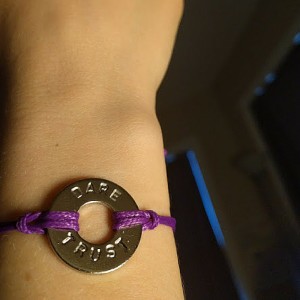This story starts with burnout.
You see, I’ve been trying to recover from burnout for what seems like forever. Some days it feels like sleep I lost a decade ago still haunts me today. Some days it feels like I carry a weight of exhaustion so heavy it will never be lifted.
And on other days I feel great. Sometimes I even feel great for several weeks in a row.
But always, inevitably, it seems like there comes a point when I crash again. When the sweet zing of excitement wears off and I come staggering back into my body to discover how deeply, truly, and utterly tired I am.
Maybe you have this problem, too. Maybe you, too, have the skittish, delicate kind of energy that can take you oh so far — but only if you treat it oh so gently and carefully. And only if you put it to bed often and for longer than any body should reasonably “need” to rest.
Or maybe you are nothing like me and your energy is strong and robust, in which case you should tell me all your secrets in the comments below. For years I longed to have the kind of strong, robust energy that I so admired in others.
But the truth is that I don’t — I have the quiet, delicate energy of a dreamer. And my constitution requires a lot of rest, a lot of time for night-dreaming, and a lot of time for day-dreaming and quiet contemplation.
Which is why I need a new theory of getting things done — because my old way was clearly not working.
My way of pretending my energy was strong and robust. My way of gritting my teeth and digging my heels in and just pushing through. My way of shouldering should-dos and have-tos until I felt like Atlas with the weight of a life lived by other people’s rules resting on my shoulders.
For the past couple of months I have been experimenting with a new way of doing things.
It’s a way that I shan’t take credit for inventing, but it’s new-to-me and it seems to be working — so this week I’d like to invite you to try it, too.
The new way involves not-doing more than it involves doing. The new way means sitting down and resting when my back hurts even though the cooking isn’t done yet. The new way means typing out this missive to you because I felt the words pattering in my heart even though I didn’t “have time” to write to you today. The new way means trusting that I will find the time I need, that I can write this missive and that things will work out anyway. And, most of all, the new way means sleeping — it means a lot of sleeping.
The new way looks nothing like “working” the way I’ve always conceived of working — the slogging away, the grinding through I’ve always envisioned and pursued.
But here’s the thing. For the first time in possibly forever, I achieved everything I set out to do in March.
Since last summer I have set goals at the start of every month, and at the end of every month I reflect on what I achieved and what I didn’t achieve and I recalibrate and set my goals for the coming month.
Every month I note that I failed to achieve roughly ⅔ of what I set out to achieve.
But in March I did it all. Even the wishy-washy, maybe-if-I-get-around-to-it stuff I thought would be nice but didn’t really plan to achieve.
In the spirit of total honesty, my top priority in March was to rest — so maybe some of my success is just that I’m getting better at setting more attainable goals.
I don’t think that’s the whole story.
I think there’s a kind of magic to living this way. Free of rules and have-tos and should-dos. Free to rest when you’re tired. Free to do whatever you want when you’re not. Free to play and go for a walk and take a nap and write a book.
I think that getting things done works like this:
Motivation + inspiration = joy
Motivation – inspiration = toil
Inspiration – motivation = guilt
If we want to get things effortlessly and joyously we have to align our doing with our inspiration.
And in order to do that we need to give ourselves permission to rest. Because no one feels creative and inspired when they’re tired.
We need to give ourselves permission to tend to our quiet, delicate dreamer-energy and care for our bodies and our needs. We need permission to break the rules. Permission to be imperfect and flawed. Permission to suck at it — to fall back into our old patterns and habits and to realize we were still following rules without realizing it.
Because permission is the key to everything.
And when we give ourselves permission to live like this we unlock the door to getting things done in a way that feels easy, playful, and joyous instead of hard, burdensome, and exhausting.
After all, who wouldn’t want to live their life like that?
Much love,
Jessica
P.S. If this sounds brilliant but you’re not sure where to start, I’d love to invite you to work with me as a private coaching client.
